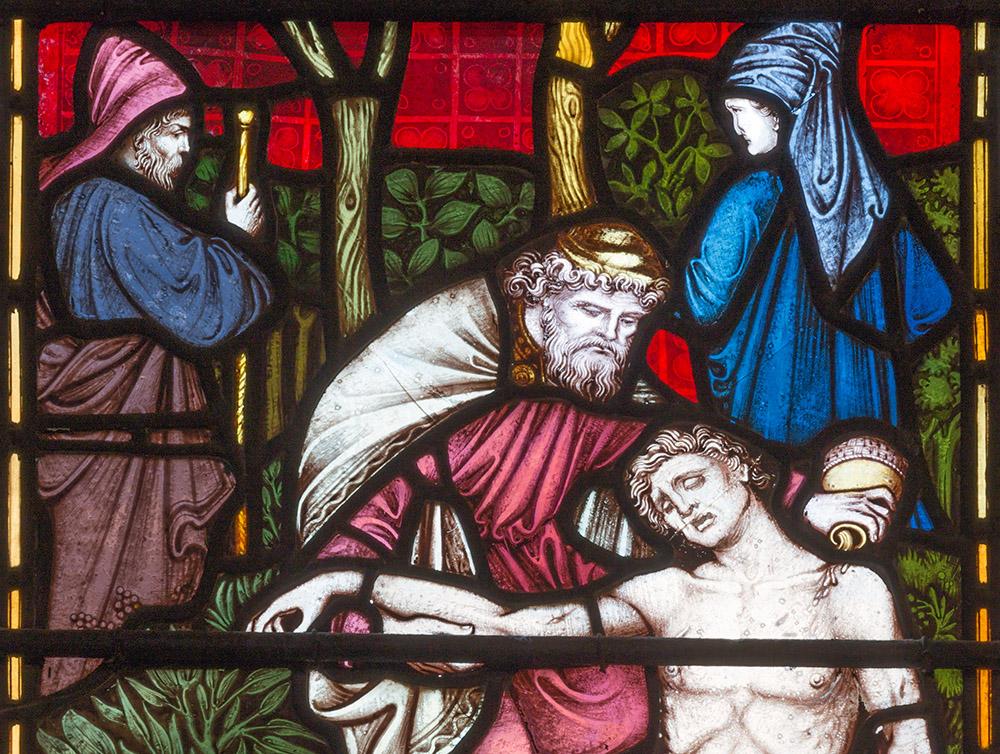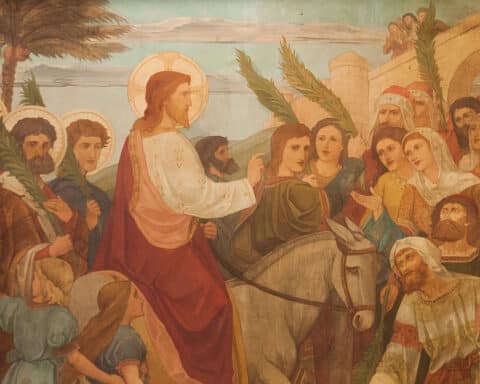
As a Church, we regularly reduce the Gospel to a series of moral principles. Be nice to one another. Do good. Go and change the world.
This do-gooder Christianity places the emphasis on our works. We become the source of righteousness. The emphasis is not on Jesus Christ renewing the very cosmos.
Colossians does not traffic in moral platitudes. It begins with a cosmic vision of the world renewed through Jesus Christ. Jesus is the Word made flesh, the logos (logic) of God. The created order is made according to the wisdom of this Word.
But Jesus is not just the logos as an abstract principle. Jesus is that person who holds together the Church. His sacrifice of love upon the cross spreads out from the Church to all existence.
| 15th Sunday in Ordinary Time – July 14, 2019 |
|---|
|
DT 30:10-14 |
And this sacrifice has an effect. The Church, through the headship of Jesus Christ, is to become the space of reconciliation. We are reconciled to God, given a divine life that we did not deserve. We are reconciled to our neighbor, becoming living stones in a temple of humanity now dedicated to Christ.
This Gospel is not a quaint moralism. It is the promise that all creation will be saved through Jesus Christ, who is the very power of God made present here and now.
We can read the parable of the good Samaritan through the lens of Colossians. The parable of the good Samaritan has suffered from a benign moralism. Homily after homily has proclaimed, “Remember to help your neighbor. Be a good neighbor. Be a good Samaritan.”
This is a misreading of the parable. Jesus teaches this parable considering two questions. The first is given by a scholar of the Law, who wants to know how to inherit eternal life. The scholar of the Law answers the question himself, aware of the totality of the law as love of God and neighbor.
But the scholar of the Law also wants to circumscribe this love. Who is the neighbor? Is it my fellow Jew? Is it only those in Jerusalem?
Jesus offers this parable as a way of expanding the notion of neighbor. Neighbor is not defined by geography or ethnic identity. The neighbor is the one who does the will of God.
The good Samaritan is thus a parable about divine salvation. Through the announcement of the kingdom of God, through the Incarnation, salvation is offered to the entire human family.
As the early Church often preached, the real good Samaritan is Jesus Christ himself, who has come into the world to bind the wounds of a broken humanity in the hospital of the Church. He has left for us the sacraments, the salve of God’s word, the works of mercy to bind our broken wills.
As Origen of Alexandria noted at the end of his preaching on this parable, we are to become like Jesus. There is a kind of “morality” to this transformation. But it is a morality grounded first in a sacramental mysticism.
That is, we must stop believing that Christianity is a distillation of moral principles that we should follow. And recognize anew that Christianity promises salvation, redemption total union with Jesus Christ.
In the end, we must become like the good Samaritan, like Jesus Christ. This isn’t a matter of opening the door for a friend. It’s letting ourselves encounter the one who became for us neighbor, Jesus Christ.
Timothy P. O’Malley, Ph.D., is the director of education at the McGrath Institute for Church Life at the University of Notre Dame.





